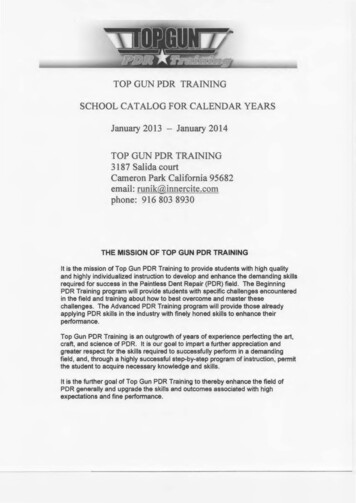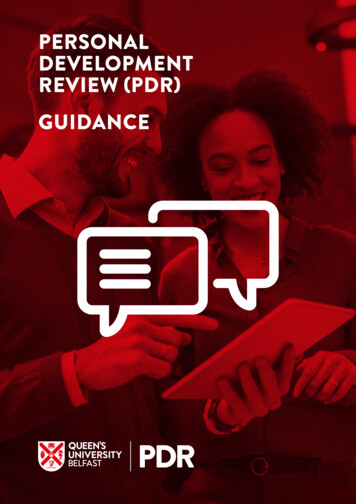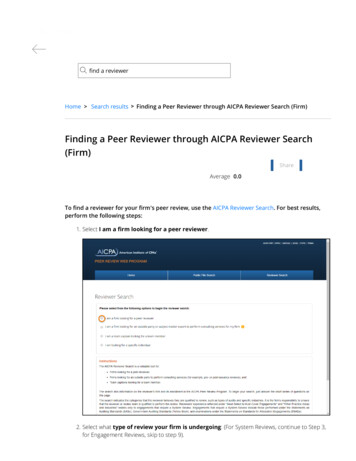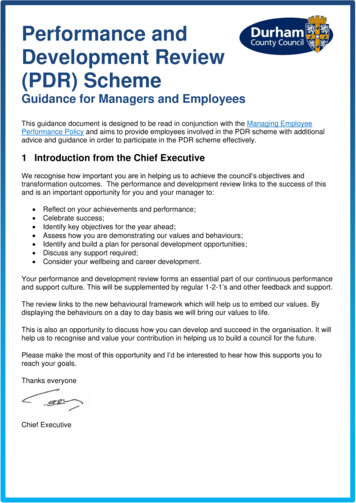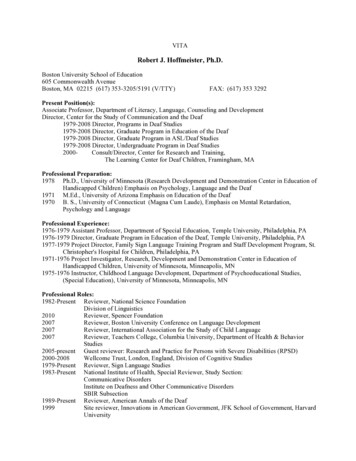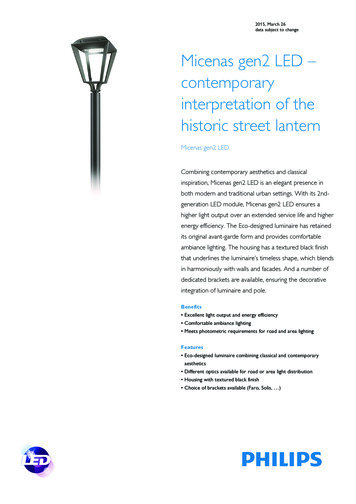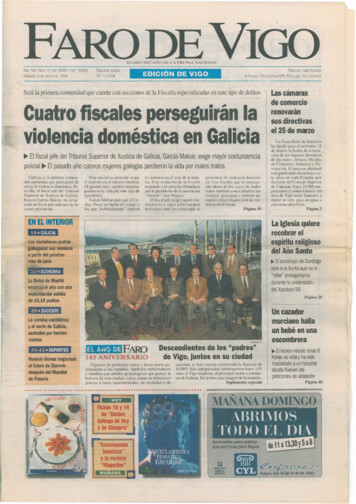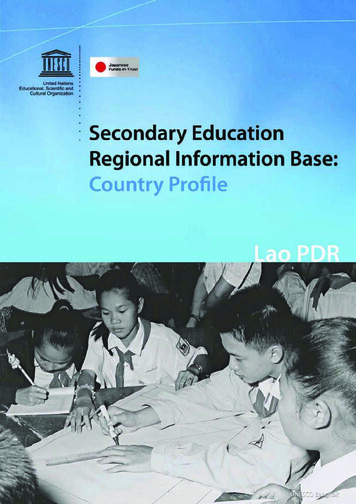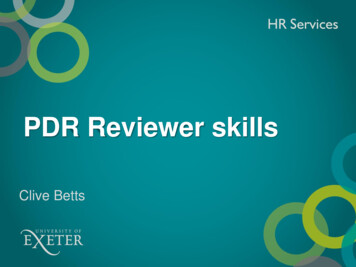
Transcription
PDR Reviewer skillsClive Betts
Purpose of PDR Performancediscuss RoM, ACCELERATE, Peer Dialogue discuss goals: looking back and planning aheadidentify and note achievementsidentify and note gaps in experience, opportunities, outcomes Developmentsupport and guidance for career development Reviewdetermine actions going forward which will help to achieve theidentified goals
The Role of the Academic LeadThe Academic Lead is not a line manager . .but is a key source of guidance, support andadvice . .about expectations of academic standards at theUniversity of Exeter.
The Role of the Academic LeadThe Academic Lead is accountable to the Head of Discipline in theCollege. His/her principal responsibilities include: Ensuring newly appointed academics receive an effectiveinduction in the College Providing quality mentoring support to assigned academics intheir discipline Carrying out Performance Development Reviews for relevantstaff in their discipline, working closely with Heads of Discipline,Directors of Education and Research to ensure meaningfultargets are set Supporting new lecturers during the Professional DevelopmentProgramme (PDP) by providing advice and guidance
The Role of the Reviewer Set the scene – why are PDRs important, what’s goingto happen when Read what they have put on their form Offer suggestion for key areas for discussion Support the reviewee Listen, give perspective Offer advice and guidance where necessary Agree actions Sign the form
Hygiene factors Preparation Time Place
PDR in practice – the coaching viseTellDirective
PDR in practice – GROWGGoalsRRealityOOptionsWWill/What/When
Solution focused coaching
Being a mentorMentoring is best performed by someone who hastrodden the path of the mentee before them,whether this refers to the whole scope of anacademic career, broader experience outside theUniversity, or a specific current concern.
Mentoring skillsSelf-awareness(understanding self)RelationshipmanagementEmpathySense of proportion/humour?Goal nceptualisingMentorInterest indeveloping othersBehaviouralawareness(understanding others)Committed toown learning
Mentoring knowledgeWork area specificRelated work areasPolitics, culture, networks,contacts, peopleProgression, CPDOpportunities,policiesLife choicesThe bigger picture
The mentoring three stage modelI’m not sure what to do nextI’m confusedThere’s this problem with My career .Where can I go for thisI don’t understand thisWho can help me with this
Problems/unrealised potentialEXPLORATIONPromotion of learningNEW UNDERSTANDINGSolutions, actionsACTION PLANNINGAlred, Garvey & Smith 2006Mentoring Pocketbook.Management Pocketbooks,Alresford
PDR Summary & TimelineMarch/AprilPDR meetingFollow – up Start of annual cycle –following RoM Put Reviewee at ease Your actions Agree timing Feedback to SMT Agree who will write up September monitoringmeeting Meeting arranged byReviewer PDR form completed beforemeeting Complete by July
Purpose of PDR Performance discuss RoM, ACCELERATE, Peer Dialogue discuss goals: looking back and planning ahead identify and note achievements identify and note gaps in experience, opportunities, outcomes Development support and guidance for career development Review determine actions going forward which will help to achieve the
